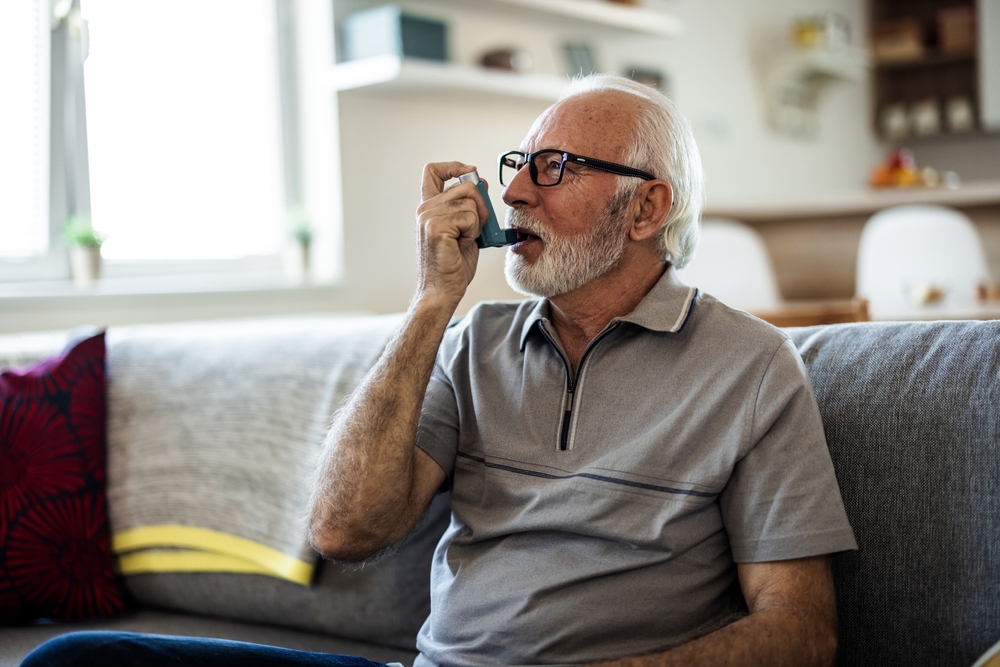Causes of Wheezing in Elderly Adults
Category:

As you spend time with your elderly loved ones, you may notice they sometimes wheeze after doing something strenuous like climbing the stairs. A wheeze can usually be heard on the exhale and sounds like a whistle or rattling sound.
Wheezing in elderly adults is actually more common than you might think. There are many different causes of wheezing in elderly adults, but most of them can be treated or managed successfully to improve quality of life.
What Causes Wheezing in Elderly?
In general, wheezing is caused by the airway being restricted, either by inflammation or extra mucus. The respiratory system weakens with age, which makes wheezing more likely and makes the body more susceptible to wheezing if triggered. When an elderly person coughs, the respiratory system may not be strong enough to clear all the mucus, leading to wheezing.
Asthma, chronic obstructive pulmonary disease (COPD), Emphysema, cystic fibrosis and Pneumonia also lead to wheezing since they cause the throat and airways to become inflamed. Infections, anaphylaxis caused by an allergic reaction, and even a physical obstruction can cause wheezing. In some cases, wheezing can also be a symptom of heart failure – but in this case the wheezing would be chronic, and other simple causes like dust in the air have been ruled out.
Treatments for Wheezing in Elderly Adults
Wheezing that occurs along with a common cold does not necessarily require treatment by a doctor. If the wheezing is unexplainable, goes away and then comes back, leads to difficulty breathing, or is accompanied by chest pain, a doctor should be consulted. The doctor can determine the underlying cause and decide if medical treatment is needed.
Allergy medicine as well as nasal sprays can often help with wheezing. Allergy immunotherapy is sometimes used to help with wheezing. Typically done with injections, this type of therapy teaches the body not to react to allergens and therefore prevents wheezing.
Download Our FREE Path to Care Guide
There are also many at-home remedies that can ease wheezing. Some of them include:
- Inhaling steam so the warm, moist air can help clean sinuses and open airways.
- A warm drink like tea can help loosen airways and break up the congestion that leads to wheezing. Add a bit of honey to the tea for natural sweetening and its anti-inflammatory properties.
- Breathing exercises can help with chronic conditions like COPD, asthma, and bronchitis, all of which can cause wheezing. There are many yoga-inspired breathing techniques that can be helpful.
- Humidifiers can help combat the dry air in winter and prevent wheezing.
- Air purifiers (preferably those with a HEPA filter) can help remove the triggers that can cause wheezing, like allergens and pollution.
- Drinking plenty of fluids will help lubricate the throat and airways and break up mucus.
Wheezing, when not connected to a cold or other disease, can typically be prevented by staying in clean, fresh air and avoiding smoking.
If you notice your loved one wheezing, don’t stress right away. Work with a doctor to determine the underlying cause and remember wheezing can go away on its own or with simple, at-home remedies.
Subscribe
Date: 2024-06-11
Category:


